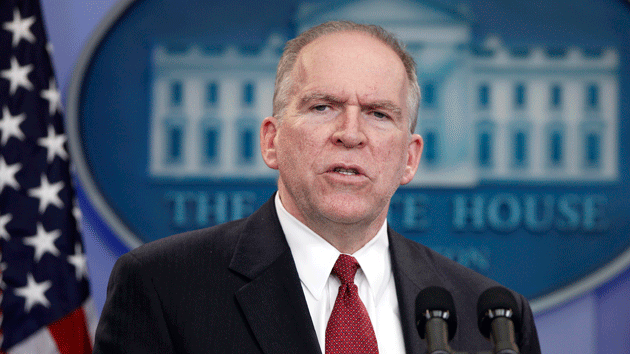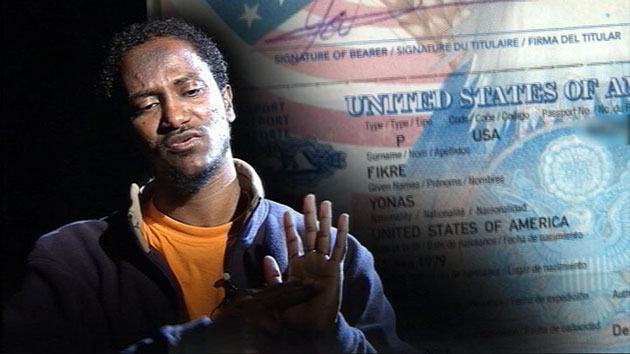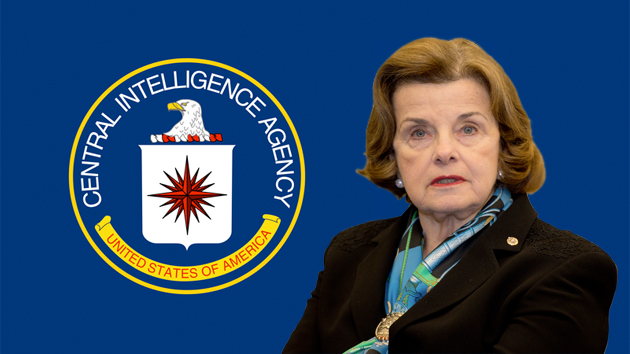
Charles Dharapak/AP
On March 11, Sen. Dianne Feinstein (D-Calif.), the chairwoman of the Senate intelligence committee, strode on to the Senate floor and made a shocking charge: The CIA had spied on committee investigators who were examining the CIA’s past use of harsh interrogation techniques (a.k.a. torture). She essentially confirmed media reports that the agency had accessed computers that had been set up in a secured facility for her staffers to use—and that this high-tech break-in was related to a CIA memo that the agency had not turned over. The document was far more critical of the CIA’s interrogation program than the agency’s official response to the still-classified (and reportedly scorching) 6,300-page report produced by Feinstein’s committee. As Feinstein described it, the CIA, looking to find out how her sleuths had obtained this particular memo, had been spying on the investigators who were paid by the taxpayers to keep a close watch on America’s spies.
Feinstein’s public statement—unprecedented in US national security history—caused an uproar. I noted that this clash between the Senate and Langley threatened a constitutional crisis. After all, if the CIA was covertly undercutting and interfering with congressional oversight, then the foundation of the national security state was at risk, for the executive branch, in theory, can only engage in clandestine activity as long as members of Congress can keep an eye on it. Yet the system of oversight appeared to have broken down.
That same day, CIA chief John Brennan was speaking at a previously-scheduled event at the Council on Foreign Relations. After he uttered a few opening remarks, moderator Andrea Mitchell, the NBC News correspondent, asked the obvious question: Can you respond to Feinstein’s allegations? Brennan assured the crowd that the CIA was not “trying to thwart” the Senate intelligence committee’s work on torture. And he said: “As far as the allegations of, you know, CIA hacking into, you know, Senate computers, nothing could be further from the truth. I mean, we wouldn’t do that. I mean, that’s—that’s just beyond the—you know, the scope of reason in terms of what we would do.”
Brennan deployed the usual dodge: He couldn’t talk details because the matter was now under investigation. But he added: “When the facts come out on this, I think a lot of people who are claiming there has been this tremendous sort of spying and monitoring and hacking will be proved wrong.”
The facts have come out—well, in a way—and, it turns out, Brennan has been proved wrong. As McClatchy News reported on Thursday morning, a CIA inspector general investigation has determined that CIA employees did improperly access the computers used by Senate intelligence committee investigators. A CIA spokesman noted that the IG report concluded that “some CIA employees acted in a manner inconsistent with the common understanding between [the Senate committee] and the CIA.” Brennan apologized to Feinstein this past Tuesday.
There are two possible explanations for Brennan’s misleading statements in March. Either he knew that his subordinates had spied on the Senate staffers but had claimed otherwise, or he had not been told the truth by underlings and had unwittingly provided a false assertion to the public. Neither scenario reflects well upon the fellow who is supposed to be in-the-know about the CIA’s activities—especially its interactions with Congress on a rather sensitive subject. (The Senate committee’s study reportedly concludes that the CIA’s use of torture produced little and that CIA officials misled Congress about the program’s effectiveness.)
Brennan has sent the inspector general’s findings to an accountability board that could propose disciplinary measures. But what happens to the CIA’s Senate spies is only part of the issue. Brennan owes the nation an explanation for his own actions. Why did he put out a false cover story? Was he bamboozled by his own squad? Was he trying to stonewall?
The CIA conducts much of its business in secrecy; and most of Congress’ vetting of the CIA likewise occurs out of public view. Effective oversight requires trust and cooperation between the two—and there must be that trust and cooperation for the public to have confidence that the oversight system works. But there also has to be public trust in those who lead the CIA. Brennan’s initial public statements about this scandal severely undermine his credibility. He owes the public a full accounting. If he remains in the job, President Barack Obama will owe the public an explanation for why he retained an intelligence chief who misled the public about CIA misconduct.














